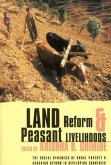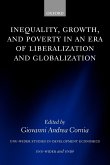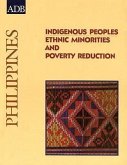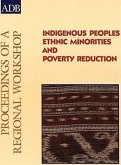AWARD WINNER: BEST BOOKS 2009 AWARD, GOLD MEDAL IPPY AWARD, GOLD MEDAL INDIE WARD, FINALIST INDIE AWARD, 2 FINALIST GLYPH AWARDS (MULTICULTURAL & BEST FIRST BOOK BY NEW PUBLISHER). Author Cindi Brown shares the stories of Kenya's big-hearted, smart, creative, earnest and caring people, and she gives 100% of the book's proceeds to programs assisting Kenyans. Cindi was a volunteer at the Tropical Institute of Community Health (TICH) in Kisumu, Kenya, and reveals what life is like in rural villages and urban slums. She lived in Barack Obama's father's homeland, and worked with many people from the Luo community. The author reflects on Kenya: "Each day, I would walk to school on dirt roads, crossing paved streets and dodging cars and boda bodas (bikes for hire). I passed little herds of sheep and cows, school children in uniform shouting out, "Hey, white lady!" Young, handsome men from the slums walked to town for work. Cars passed, kicking up red dust. I would smile and say Hi to Maasai warriors guarding the fancy homes. Sometimes they would stand from their rock perch and shake hands, their lovely red plaid robes falling around their shoulders and covering their tiny, bony legs. Occasionally, I would pass coworkers, perhaps Mr. Henry Oyugi, perched on the back of a boda boda and calling good morning! Seeing his bearded face, tweed jacket and notebook stuffed with papers, as he bumped on the back of the bike, would make me smile. Henry's research office was next to mine. A student or intern, or both, were always in Henry's office, inputting research data or getting a lesson in research methodologies. Lots of loud accented talk in a mixture of Luo, Swahili, and English, punched with laughter here and there. I'd watch Henry and his prodigies with their heads bent over a data book, then I'd turn to look out our second floor window, across the tops of trees with red and yellow flowers in full stance. I looked toward Lake Victoria, into cloud puffs, and heard bird wings flapping, or Director Dan's rooster crowing next door. Henry's voice would rise and I'd look back to see someone else entering his office, bodies collecting in Henry's realm, voices mingling languages and hands clasping in greeting. The Tropical Institute of Community Health and Development in Africa. I worked at this college and assisted with communications and the Annual Scientific Conference and participation in the agricultural show. Passing through the gate each morning meant greeting Fred, John, and other guards and signing the logbook. Greetings are important and required stopping to inquire about each other's evening and night's sleep and morning meal, often while holding hands. Kenyans taught me about compassion and living in difficult situations. This book is my homage to their strength and intelligence."Learn about the issues faced by Kenyans as they struggle to improve their lives with farming and education, and as they work with limited resources to house, feed and clothe their children. Even within this cycle of poverty, there remains promise for change in the Kenyan middle-class and in rural villagers, especially the women who build homes, tend crops, sell their goods at market and collect water and firewood to be able to provide for their children. The reader will visit the slums and public hospitals, and see people fight to live; most struggling with HIV/AIDS-related complications, like TB or malaria. Journey to rural villages on bumpy dirt roads and enter villagers homes, made of mud and cow dung, that are exceedingly neat and comfortable. Attend frequent funerals held in the heart of people's homes where loved ones are buried in the yard amongst much wailing and choir song. See the small victories and the promise of the people.
Hinweis: Dieser Artikel kann nur an eine deutsche Lieferadresse ausgeliefert werden.
Hinweis: Dieser Artikel kann nur an eine deutsche Lieferadresse ausgeliefert werden.








